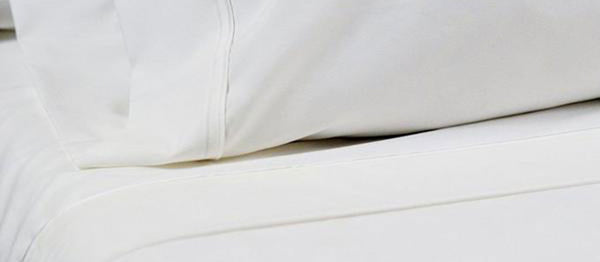
What's the Deal with Organic Sheets?
If you're anything like me, you sometimes feel bombarded by choices. When you're trying to do the best by your family, you wonder if you should spend the money on the top of the line or save the money and cover the bare necessities. Just the other day, I was in the grocery store mulling over the apple selection (my kids eat roughly 5 tons of apples per week), and I began fretting: organic or conventional? Jerry Seinfeld's voice popped into my head and I imagined him saying, "What's the DEAL with organic?" Yeah, Jerry, What IS the deal with organic? Why should I care? Is it really better for my family or should I save my shekels? From apples to sheets, the word organic is everywhere. So let's chat.

If you're like me, you'd expect if something is labeled organic to be extremely high quality. I always have visions of peaceful farms where everyone is super healthy and everything is wonderful and perfect... that's where organic stuff lives, right? Organic cotton is roughly defined as fiber that does not come from genetically modified (GMO) seeds and which has been grown without the use of man-made pesticides and fertilizers—all of which is supposed to be independently verified. Ok, so far so good.

Now the question I have as a mom with a family budget... why is organic always more expensive? Well, organic cotton is more difficult to come across than conventionally grown cotton. Organic cotton currently accounts for only 0.1% of global cotton output. That number seems really low, but there are a few reasons. The cost of converting to organic and the lower crop yields from organic cotton definitely dampen the farmers' interest! Another reason is farmers worry about high economic risk due to uncertain market demand.

Given the limited supply, it is no surprise organic cotton is more expensive than non-organic varieties. We aren't comparing apples to apples, here. Conventional cotton (currently prices at about $0.57 per pound) compares with the long-term average of about $0.70 for organic cotton. Organic cotton from Turkey, the world's largest grower, sells for about 20% more than non-organic cotton. That's quite a lesson in economics; I feel like I'm back in college again!
Speaking of college, remember being a poor college student and trying to save a buck where you could? I can't tell you how many times I ended up with imitation handbags or knockoff shoes in an attempt to keep up with trends and also have enough money to eat! So If I decide to buy organic sheets for my family, will they be sleeping in the equivalent of knockoff sheets? The 20% premium for organic cotton and overstretched inspection systems mean that “the market is absolutely ripe for fraud in organics" according to Mark Messura of Cotton Incorporated, an American trade group. Yikes!! So what is a gal to do?
Check out the next piece in our Organic Blog series: Mythbusting Organic Cotton Sheet Part I
Shop Moreganic™ from Perfectlinens.com!
Also in Snooze News to Peruse (Our Blog)




